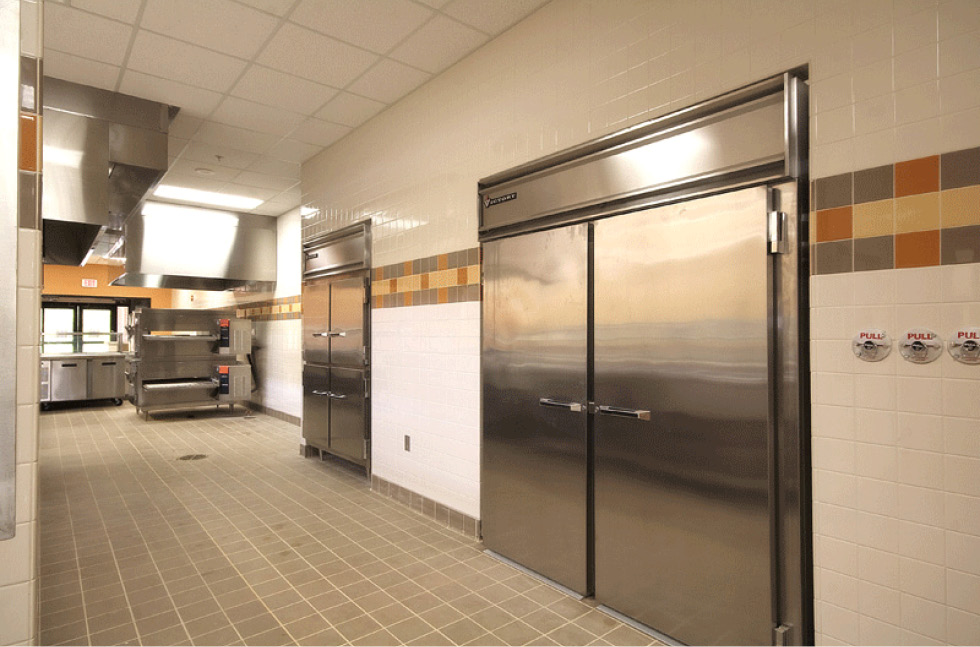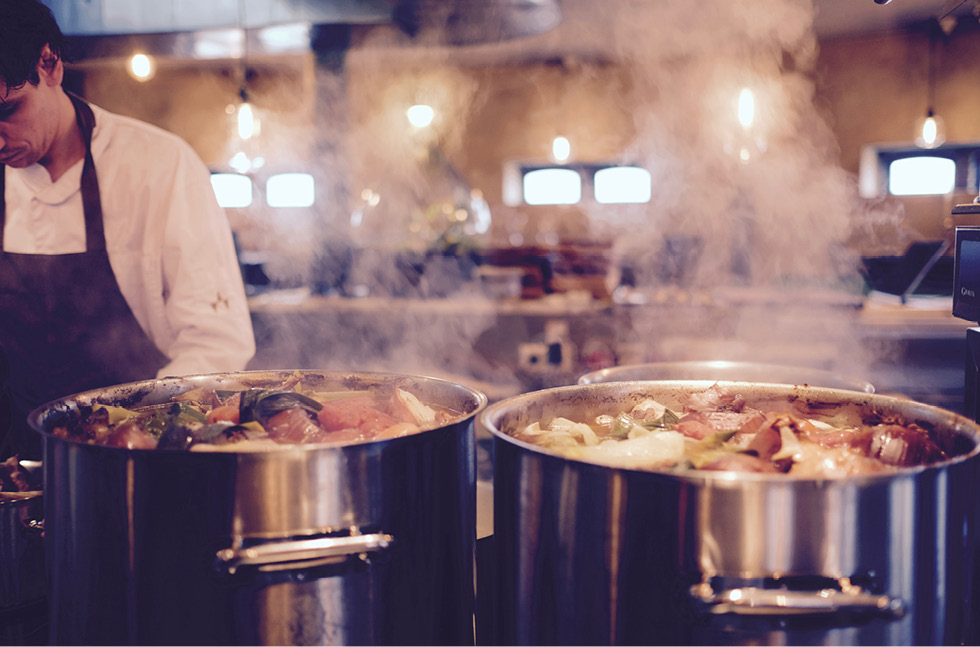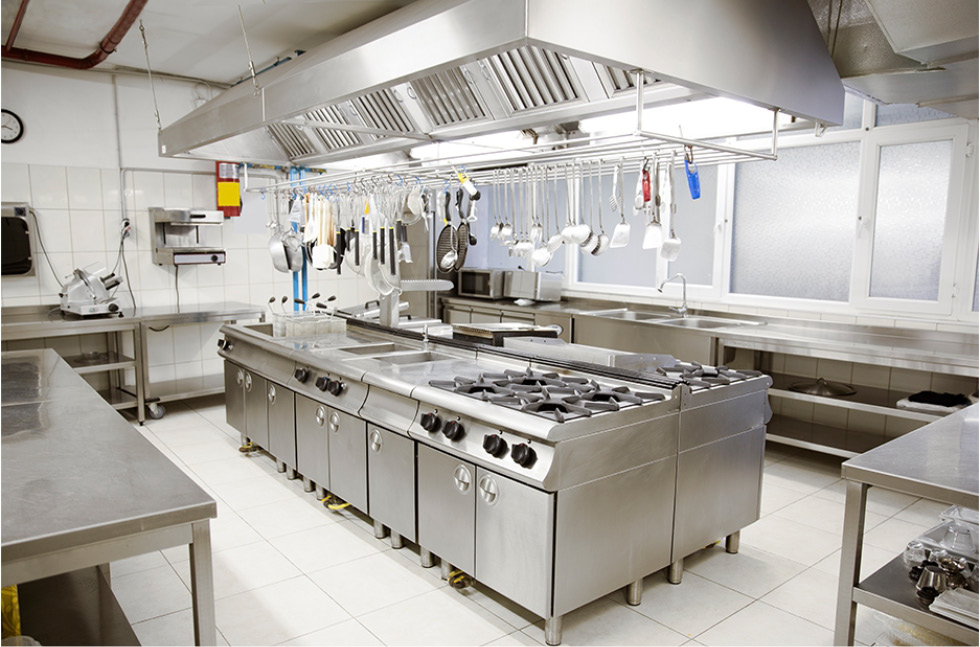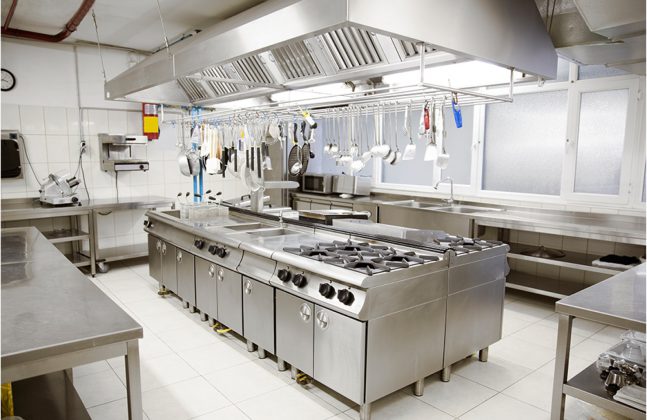Saving money on commercial kitchen flooring projects isn’t just about reducing costs — it’s about engineering value. From design and planning to installation and project management, there are plenty of opportunities to save time, reduce costs and most importantly, add value.
This article will guide you through value-added ways to cut costs, while still delivering the highest quality commercial kitchen on time and on budget.
Proper planning: The most important cost-saving measure
The easiest way to reduce the cost of your commercial kitchen flooring is to plan carefully, and make sure you have all of the required materials ready when you start the job. Rush the planning stage and you’re liable to run into budget and scheduling overruns later on in the project. And hasty material selection or installation can result in premature failure of your commercial kitchen flooring system.

The easiest way to reduce the cost of your commercial kitchen flooring is to plan carefully
Proper planning takes time but it will keep you from spending extra money – in the form of punch items, overtime or premature failure of your flooring system – down the line.
Here are three questions you need to ask in the planning stage to cut costs:
What challenges does this flooring system need to overcome?
Commercial kitchens vary widely in application. Corporate kitchens, prep kitchens and other light-duty applications can get away with linoleum or vinyl composition tile (VCT). Heavy-duty kitchens, however, require heavy-duty flooring systems. They see heavy foot traffic, water spills and grease buildup, which can wear out some flooring materials, especially grout.
Cutting costs by choosing a lighter-duty material than you require will cost you more in the long run. Before even considering price, you need to ask yourself what challenges you need this flooring to solve. These challenges —not cost— should guide your material selection.
For medium- and heavy-duty applications, quarry tile is the standard. It’s cheap and if it’s installed correctly with epoxy grout, will likely last you as long as you need. Your flooring contractor can discuss whether quarry tile, or other emerging materials such as recycled PVC, is best for your application.

Some commercial kitchens require heavy duty flooring solutions
What other subcontractors are going to be in the building while your floor is being installed?
Your flooring installation team will be slowed down and quality will often be compromised by other trades being in the work area during installation. You should make every effort to schedule your project so the flooring installers have as much time and space to themselves so they can work as efficiently as possible and, ultimately, deliver a better product to you. This is a simple provision that has the potential to generously trim the labor costs of your flooring installation.
Will you have experienced supervision on the job site to solve problems as they arise?
Supervision is key. Problems can —and will— arise on the job site. A supervisor with the expertise to solve them is invaluable. Ultimately, skilled supervision will ensure the proper steps are taken to deliver the best quality flooring system.
We recently replaced flooring in a high-traffic restaurant which didn’t close down during the project. Expert supervision not only ensured the tile was laid and grouted correctly by the installers — it kept the fast-paced project on time and within budget.
You should consider the logistics of the project long before the first tile is laid. Proper planning keeps the job moving and saves you money in the long run.
Reducing material costs: Think in terms of long-term value, not short-term savings
To ensure the long-term value of your investment in commercial kitchen flooring, you need to think beyond the initial material costs. Over the usable life of your flooring system, cheaper products often exceed the cost of more expensive products when you factor in durability and maintenance costs. There are a few grout materials such as Mapei Kerapoxy and Tec Power Grout which are less expensive, easier to work with and are completely acceptable for heavy-duty applications.
Especially in high-impact environments like commercial kitchens, it’s imperative that you choose a flooring material that not only provides savings up front, but for years to come. High durability and minimum maintenance expenses are key.
That’s why you need to think of material selection in terms of life cycle costs — not just upfront investment. When choosing between materials for your commercial kitchen, you need to perform a life cycle cost analysis, or a formal analysis of the dollar amount a material will cost over its usable life after factoring in maintenance, cleaning and removal costs.
For example, both porcelain and quarry tile will overcome all the challenges associated with a heavy-duty kitchen environment. But when comparing installation, maintenance, durability and replacement costs, quarry tile has a much lower lifespan cost. The only drawback of quarry tile is its lack of design versatility — hardly a concern in a space as utilitarian as a commercial kitchen.

Comparing materials based on lifespan cost will help to save money
Comparing materials based on their estimated lifespan cost rather than cost-per-square-foot will not only save money, it will ensure you choose the best-performing flooring for your commercial kitchen.
Reducing installation costs through value-engineering
The best flooring contractors know how to make every hour and day of your commercial kitchen installation count. They can install efficiently, identify cost-saving measures — and pump every penny saved back into the project. In short, good flooring contractors engineer value.
Here are some of the ways a quality flooring contractor saves time and adds value before, during and after installation:
- Innovative installation practices
Kitchen flooring installations flexibility and innovations. Restaurant construction projects require coordination with other subcontractors. Replacements require innovative installation plans that minimize your kitchen’s downtime.
Project management systems allow your contractor to coordinate schedules and make the best use of their time, getting your project done on schedule. And for replacements, innovative solutions such as Vertical Installation Technology (VIT™) allow installers to hoist up heavy kitchen equipment, meaning less time disassembling or moving equipment.
- Source materials for the best price
After you decide on the best-value material for your commercial kitchen —quarry tile, recycled PVC and epoxy resin are all good options – you need to source that material for the best price. While flooring products are commodities with more-or-less fixed pricing, big flooring contractors continually buy materials in bulk from manufacturers and can leverage these relationships to get better pricing than is available to the public. Sound flooring contractors also know the importance of procuring materials with enough lead time to ensure it is on-site and staged in your facility the day it is needed.
Cost- and time-saving accommodations
In new construction projects, flooring is often left for last. If the subcontractors that came before were behind schedule, it means a compressed timeline for flooring installation.
Your flooring contractor needs to be able to overcome tight scheduling challenges or cost overruns and deliver your commercial kitchen flooring system without going over budget.
In the case of budget overruns late in the project, your flooring contractor can look at your specifications and make alternative recommendations that still fit your application and reduce material costs. Alternatively, they can negotiate the price of the original material with the manufacturer — or, failing that, open bidding to other manufacturers to get the price down.
With tight schedules, efficiency and experience are key. Experienced contractors can install your floor quickly, without forgoing crucial steps —like treating the underlayment for moisture— that can cause premature failure of your kitchen flooring and void the manufacturer’s warranty.
There are also ways in which they can accommodate especially tight schedules. For example, in a recent restaurant flooring installation, we offered to come in after hours keep the project on schedule, and give other subcontractors the space they needed to do their job more effectively.
There are lots of reasons to work with an experienced flooring contractor for your commercial kitchen. From innovative installation practices to extending the usable life of your flooring system through proper installation and value engineering, your contractor should be able to save money and add value at every stage of the project.





